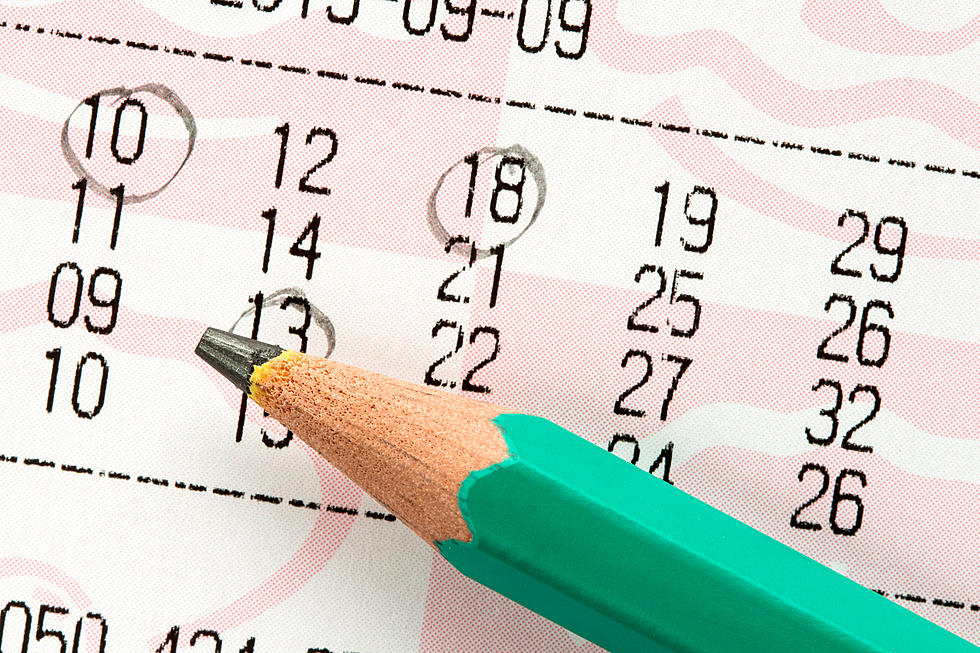
New lottery deal cuts targets for New Jersey’s take by $1B
New Jersey could get $1 billion less out of its state lottery as part of an amended 15-year deal with the private firm that runs part of it, according to an Associated Press analysis.
The deal, unveiled by Gov. Chris Christie's administration on New Year's Eve, also lowers the amount the company must generate to avoid penalties.
The revenue targets that Northstar New Jersey has to meet have been lowered by about $76 million per year over the contract, which was struck in 2013. The total revenue projection was decreased from nearly $16 billion to about $15 billion.
In return, Christie's administration said the company, which runs the lottery's sales and marketing, has guaranteed that the state's take will increase for the next three years and capped the percentage used to calculate incentive bonuses for employees at 3 percent, down from 5 percent.
The state noted that the new deal comes after a national downturn in lottery sales and said the agreement settles a dispute over the state's decision to deny Northstar's request to institute monitor games like keno.
Northstar took over sales and marketing in 2013 with promises from the Christie administration that the lottery would generate at least $1.42 billion in additional net income and remain "vigorous and successful." The underperformance -- including a $5 million drop in revenue in 2015 -- has raised questions from Democrats about the privatization strategy championed by Christie, a 2016 Republican presidential candidate who promoted lottery outsourcing as a way to shrink the government's payroll and bring in more cash.
The lottery brought in $960 million in fiscal year 2015, down from initial expectations of just over $1 billion.
Northstar had appealed the state's denial of monitor games, which administration officials said were part of the company's plan to grow revenues even though they are not legal in New Jersey outside of Atlantic City casinos.
The amended contract also cites an "unforeseen and dramatic drop" in sales of multistate games like Mega-Millions and Powerball. In November, Northstar cited national lottery figures that indicated New Jersey's decline in revenue still amounted to the best performance in the country, at only 0.5 percent.
The state also said the new deal guarantees that Northstar will pay at least $30 million more into state coffers over the next three years, which go through the end of Christie's second term. If Northstar misses targets in those years, it must make up the difference.
A spokeswoman for Northstar said the changes were needed because of the economic landscape the lottery faces.
"We very much look forward to a long a successful business partnership and to helping the lottery meet its goals," Northstar spokeswoman Angela Wiczek said.
Robert McLaughlin, a former New York state lottery executive, says it's not surprising Northstar couldn't hit its goals because the state is preventing it from instituting monitor games.
"They're really operating with one hand tied behind their back," he said.
Under the 2013 contract, the state has options to separate from Northstar if revenue falls, but lottery executive director Carole Hedinger said that's not a viable option because the state would have to hire dozens of skilled sales, marketing and technology workers.
"Doing it all in-house is not an option," Hedinger said in a statement. "Northstar is a valued partner that has delivered meaningful and necessary technology and retailing upgrades that will benefit the citizens of our state."
Lottery revenues go toward higher education as well as the state Department of Human Services, military and veterans affairs, and a school nutrition program.
(Copyright 2016 The Associated Press. All rights reserved. This material may not be published, broadcast, rewritten or redistributed.)
More From New Jersey 101.5 FM









